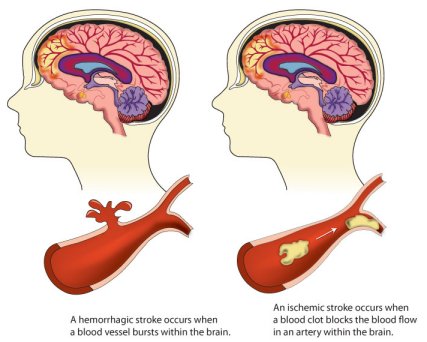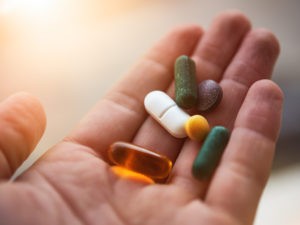
Diagnosed with Cancer? Your two greatest challenges are understanding cancer and understanding possible side effects from chemo and radiation. Knowledge is Power!
Learn about conventional, complementary, and integrative therapies.
Dealing with treatment side effects? Learn about evidence-based therapies to alleviate your symptoms.
Click the orange button to the right to learn more.
- You are here:
- Home »
- Blog »
- side effects ID and prevention »
- Regain Memory Loss Post Stroke
Regain Memory Loss Post Stroke

“Some degree of memory loss affects about a third of people who survive a stroke, according to the National Stroke Association. But it’s good to know there are things you can do to help get your memory back.”
Memory loss is a horrible feeling. It brings a feeling of helplessness that no one can help you with.
I know this because I’ve been living with chemotherapy-induced cognitive dysfunction aka chemobrain since my conventional cancer therapies finished in 1997.
I believe memory loss is both awful yet can be healed. And the article below offers 8 of the more basic healing therapies that I want to expand on a bit.
When the article below lists “stimulate your brain” I want to agree but offer specifics. I play brain games that arrive in my email in-box each morning. The company that had developed the brain games is calle Posit Science and the platform is called BrainHQ.
My subscription for daily brain games is $98.00 a year. It was not enough for me to play brain games occasionally. I began to steadily improve once I got in a daily habit- about 15 minutes each morning. My brain is sharpest in the morning after coffee.
Regarding “mnemonics” and “repeat and rehearse.” I apply both of these to faces in particular. I had a difficult time with facial recognition. Knowing peoples names is important to me. I like it when I remember the person’s name but they don’t remember mine. We’ve all been there… “Hi there…” versus “Hi John…”
I want to expand on “feed your brain.” While the right nutrition can help, I think that specific nutritional supplements will help even more. I mentioned that I drink a couple of cups of coffee each morning.
To this I would add
- Neuromag (magnesium threonate)
- Cognitex
- N-acetyl cysteine
- Acetyl Choline
As well as several lifestyle therapies such as sleep, reduced stress, moderate daily exercise.
In short, there are many evidence-based non-conventional therapies that have been shown to improve brain health.
Do you suffer from chemo brain? Memory loss? To learn more about non-conventional brain health therapies let me know- David.PeopleBeatingCancer@gmail.com
Thanks
David Emerson
- Cancer Survivor
- Cancer Coach
- Director PeopleBeatingCancer
8 Ways to Get Your Memory Back After Stroke
“Some degree of memory loss affects about a third of people who survive a stroke, according to the National Stroke Association. But it’s good to know there are things you can do to help get your memory back.
“Memory deficits after a stroke can vary…” The extent of your memory loss can depend on how old you are, the severity of your stroke, where your stroke occurred, and even the support you have from family and friends.
No medication is known to help reverse memory loss after a stroke… But where drugs won’t help, you can take steps with activities, therapy, and rehabilitation to help recover your memory after stroke…
How to Regain Your Memory After Stroke
1. Stimulate your brain. “Games that require you to use your brain, whether as simple as checkers or complex as chess, can help you regain your memory…”
2. Work with rehab specialists. Speech-language therapy enhances recovery…
Bob Mandell, now 71, who had a hemorrhagic stroke in 1996, credits various types of therapy, including speech therapy, with getting his memory back. Right after his stroke, Mandell of Naples, Florida, couldn’t get three words out and his memory loss was frustrating. But his determination to recover worked in his favor, and he believes others can do the same. “I worked really hard at therapy,” he says. He wrote about his recovery in the book Stroke Victor. “I did what psychologists called engaged therapy. I went all in, and that jarred my memory and my mind.”
3. Post reminders for yourself. Leave notes in key areas, such as a sign in the bathroom reminding you to brush your teeth, says Stephen Page, OTR/L, PhD,..
Use the alarm on your smartphone or even an old-school clock to remind yourself of appointments and when to take your medications, Page adds. Once you form a routine, it will help you re-establish your memory. Meyers agrees that in her work with patients as a therapist, “creating a routine that is repetitive and consistent can help.”
4. Make up mnemonics. Mnemonics are creative ways to remember things. They often take the form of an acronym, like the popular RICE: rest, ice, compression, and elevation — a shortcut to remember how to treat a sprain…
5. Get organized. Making it easy to see items you need for daily activities will help you remember what you need to do and when to do it, Meyers says. For example, lay out your clothes for the morning before you go to bed at night. Put your toothbrush on the sink where you’re sure to see it.
6. Repeat and rehearse. When you’re given new information, repeat it to yourself several times, the American Stroke Association recommends. Go over the material as many times as you need for it to sink in. Don’t be afraid to repeat back, in your own words, what you’re told to be sure you understand it correctly. If you have to make a presentation or give a speech, break up the material into smaller segments. These will be easier to remember.
7. Stay active. Get out of bed and move as much as possible, Kaisler-Meza says. A six-month exercise training program for patients promoted not only memory but also attention and conflict resolution in a small study of stroke survivors. And aerobic exercise promotes the recovery of brain function after a stroke, according to a study done on animals and published in the International Neurourology Journal…
RELATED: The Best Diet to Prevent Stroke
8. Feed your brain. A brain-healthy diet includes lots of fresh fruits and vegetables and fish rich in omega-3 fatty acids, according to the American Stroke Association. Eating this way will help your brain recover optimally, Kaisler-Meza says.
A healthy diet and smaller portions helped Mandell lose the 30 pounds of excess weight he was carrying when he had his stroke. He believes that helped his mental recovery. He felt better, and feeling better improved his mental outlook.”


